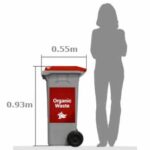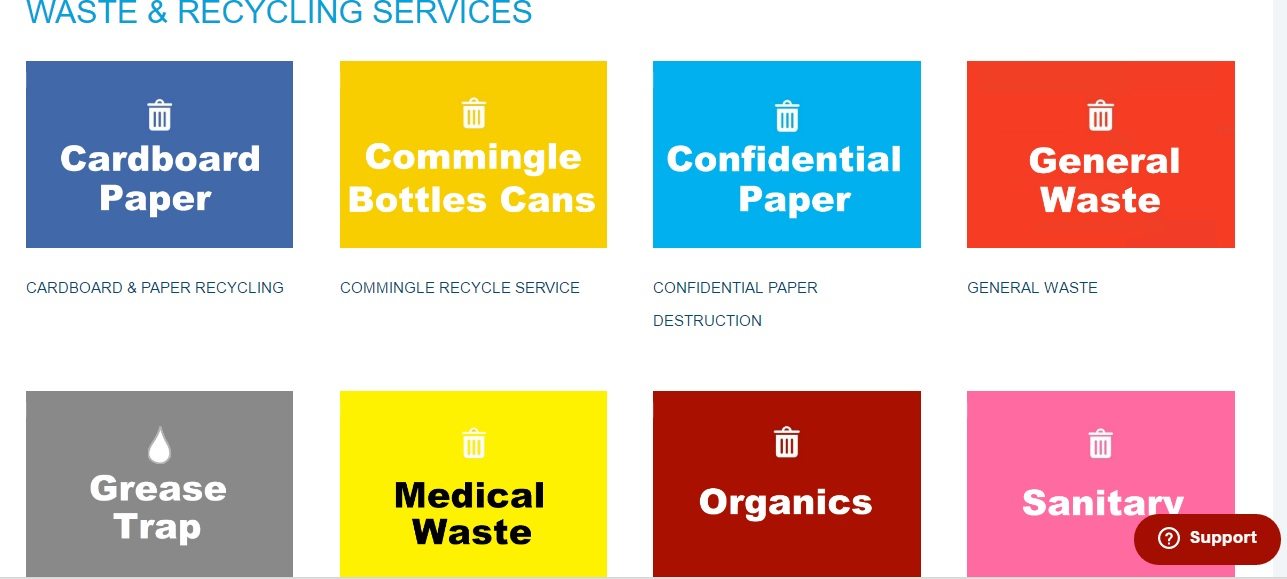How To Stop Fruit Flies In Food Bins 🛑
Energy Disrupter
How To Stop Fruit Flies In Food Bins 🛑: Continuing from our blog yesterday, we will still talk about flies and its effect to waste management. But this time around, it will be a different type of fly – a fly that does more harm than good. I may even argue that it does not bring anything good to the table.
That is the pesky fruit fly.
No, they are in no way beneficial if you ever see them in your garden. And in no way is it also ever gonna be beneficial to your kitchen. Why is it considered a pest in gardening, farms, and waste management? Are there any nuances, or even worse, dangers in fruit flies? How do you get rid of – or at least control – them in your gardens or food bins? We will talk about it here. Read on to learn more.
>Download Now: Free PDF Business Owners Guide To General Waste Bin Services
A Bit About Waster
Before we discuss how you can stop fruit flies from entering in your food bins and more, let me share with you more information about Waster.
We here at Waster provide you with innovative solutions for you and your business’s waste management and recycling needs. Furthermore, we provide flexible, 30-day contracts instead of the typical lock-in contracts, which proves to be better.
Click on the blue button to learn more.
READ: Black Soldier Fly Waste Management ⬛
How Do You Stop Fruit Flies From Entering In Your Food Bins? And More!
We first have to know what fruit flies are before anything else.
A fruit fly, or Drosophila melanogaster, is a species of fly which we also know as the vinegar fly. In Australia, we can expect to find two main species of fruit flies. The first is the Queensland fruit fly which lives in the Northern Territory, Queensland, NSW, and Victoria. Meanwhile, the second is the Mediterranean fruit fly which you can usually find only in Western Australia.
Now, why do we consider them as a huge annoyance? Are they only an annoyance or is there something much more harmful they can do?
Why We Need To Control Them: Fruit Flies Can Also Bring A Certain Illness
Ways on how to stop fruit flies in food bins come from the fact they can become a huge annoyance and also because of their destructive natures. But did you know that it has also something to do with health?
Of course, we usually think of fruit flies as huge pests because of the fact that they can turn fruits and vegetables into a useless pile of mush. Fruit flies only take a short time to breed in multiple numbers (emphasis on MULTIPLE), especially around summer or fall. They usually lay their eggs inside ripening fruits and vegetables. Fruit fly larvae then consume the fruit or vegetable, resulting in a useless and rotting carcass of what was once a fresh-becoming fruit or vegetable.
Even in a different season, they can and will breed inside pipes and drains, hence them becoming a year-round problem.
Now, they may not bring deadly viruses like the coronavirus or COVID-19, for instance. But did you know that you can still fall ill if you have close and unprotected contact with fruit flies? They can be carriers of certain dangerous bacteria or other types of germs sticking in their sleek bodies. This can cause people certain health problems, most commonly diarrhea.
This makes it all the more important for you to get rid of them as soon as possible.
Here Is How To Stop Fruit Flies From Entering In Your Food Bins
It does not matter whether the one reading right now is a simple homeowner, gardener, farmer, or a business owner trying to protect their respective fruits, vegetables, and food bins from fruit flies. Here are ways on how you can stop and get rid of them:
1 Find where they are coming from.
Figure out where you can locate the fruit flies first to stop them from buzzing around your food bins. After successfully finding it, clean the area. It may contain leftover food or the likes that attracts the fruit flies. Additionally, you can also try to locate its nest and destroy it before they multiply in numbers.
2. Set a trap
What you can do is also set up a trap to gather them in fell swoop and dispose of them as soon as possible. Bait the fruit flies by putting fruit or vegetable (or any other equivalent food) in a container and covering it with holed plastic wraps for them to enter. If you already see the container full of fruit flies, dispose of it immediately. There are other traps you can set up. You can see an example video below:
[embedded content]
3. If worse comes to worst, hire professionals
You should seek help from exterminators if you see too much fruit flies and keep failing on handling them.
Waste Management Industry
Now that we are talking about fruit flies pestering food bins, it is obviously also a problem for the waste management industry in Australia. As a result, preventive measures have to be implemented for the QLD fruit fly – or any other fruit flies.
You can read good examples in this article. The article included the following statements:
“All green waste must be stripped of fruit and vegetables prior to disposal, and fruit must remain on-site and be disposed of according the guidelines of the Quarantine Area Notice.
“The easiest disposal option is to seal fruit and vegetables in a heavy-duty black plastic bag which is placed in direct sunlight for three days. The bag can then be placed in the normal rubbish bin.”
“Fruit and vegetables can also be soaked in a container with a film of white oil for at least seven days, or buried to a depth of one metre. Qfly adults can emerge from under the soil surface if not buried deep enough.”
How To Stop Fruit Flies In Food Bins: Quick Summary
The fruit flies, unlike the black soldier flies we have discussed yesterday, pose a major nuisance to people – with some having the ability to harbour bacteria and germs which can get you sick. So you must do everything you can in your power to remove them.
Waster: Things You Need To Know
If you’re looking for different bin services, check our waste recycling shop and find the best deals in terms of pricing and services.
Also, please call 1300 WASTER (1300 927 837), or email us at [email protected] if you have any further questions.

















